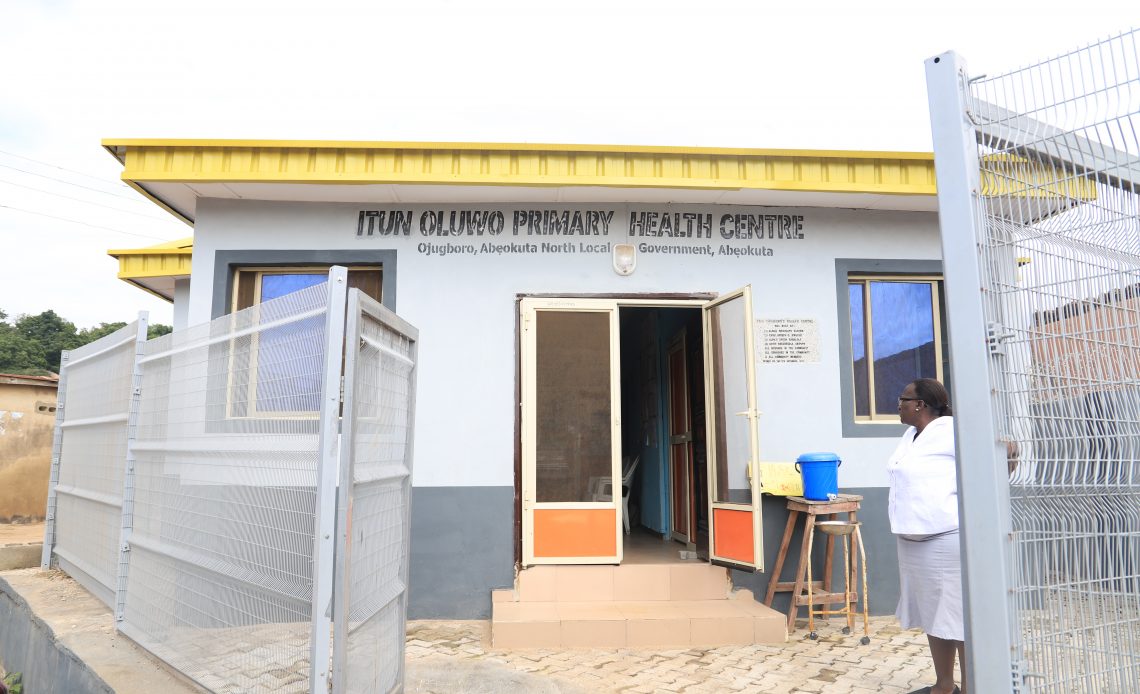Any effort to strengthen health systems must begin at the primary healthcare level, as it is the foundation of a nation’s healthcare. To boost Ogun State’s PHC system, in 2020, the state government committed to establishing at least one functional and well-equipped primary health centre in each of the 236 wards in the state. The project which started in June 2020 has given PHCs like Itun-Oluwo a new lease of life.
Established in 2013 “for the people by the people”, the Itun-Oluwo Health Centre is one of several Primary Health Centres (PHCs) serving community members in Abeokuta North Local Government Area (LGA) of Ogun State. However, as the years passed, the PHC, constructed and maintained by the community members, had become dilapidated and therefore operated at significantly limited levels.
“We realised that the community members were not patronising this PHC because the structure was a sore sight and then we had to resort to a lot of outdoor outreaches, but this did not impact the patronage of our services.” Mrs. Adejola Afolake, Officer-in-charge of Itun-Oluwo PHC.
Historically, Nigeria’s PHC system has not performed well. Evidence indicates that a majority of PHCs in the country do not meet the required standards for service delivery, infrastructure and quality of care. This is due to multiple reasons, with underfunding being a core factor behind the chronic neglect of the system. Improving service delivery at PHC level is fundamental to building a strong and effective national healthcare system, providing a foundation for quality care and reducing health inequities.
Revitalising PHCs in Ogun State
Recognising the need to strengthen the state’s primary health system, the Ogun State government committed to establishing at least one functional and well-equipped primary health centre in each of the 236 wards in the state.
“After a tour of health centres and infrastructure in the state, what we discovered were dilapidated health centres, infrastructure, aged equipment as well as a significant dearth of health care workers. This necessitated this urgent intervention.” Dr. Tomi Coker, Honourable Commissioner for Health, Ogun State
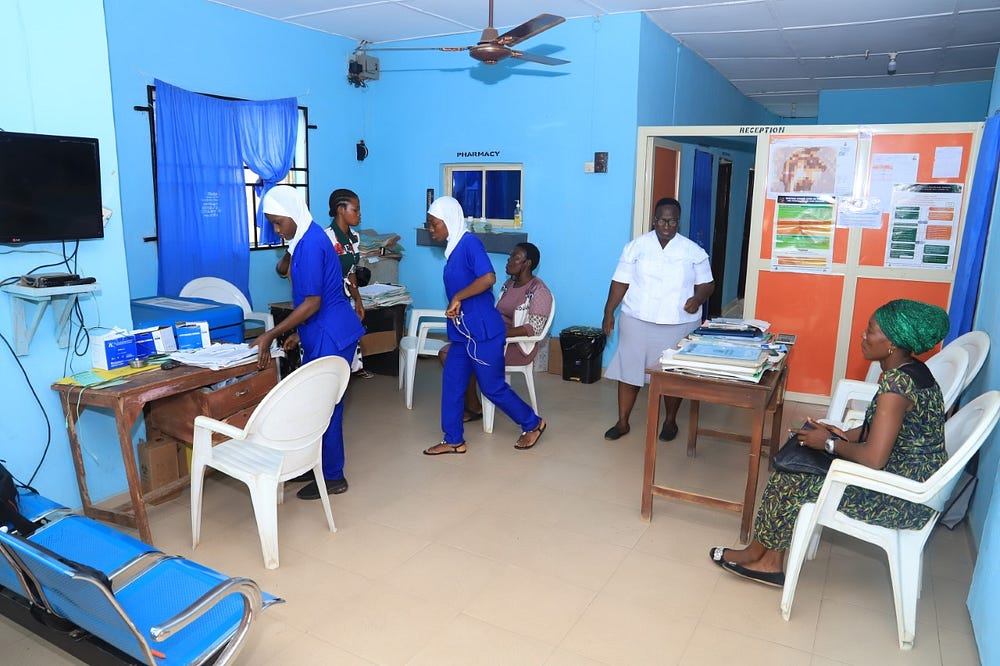
The COVID-19 pandemic stalled the launch of the project scheduled to begin in 2020. It eventually started in June 2020, with a plan to carry out the renovations in phases. The first phase began with the identification and renovation of 21 primary health centres in the state. The PHCs were selected by their level of activity and demand for services in the area, location in densely populated areas and overall physical infrastructure.
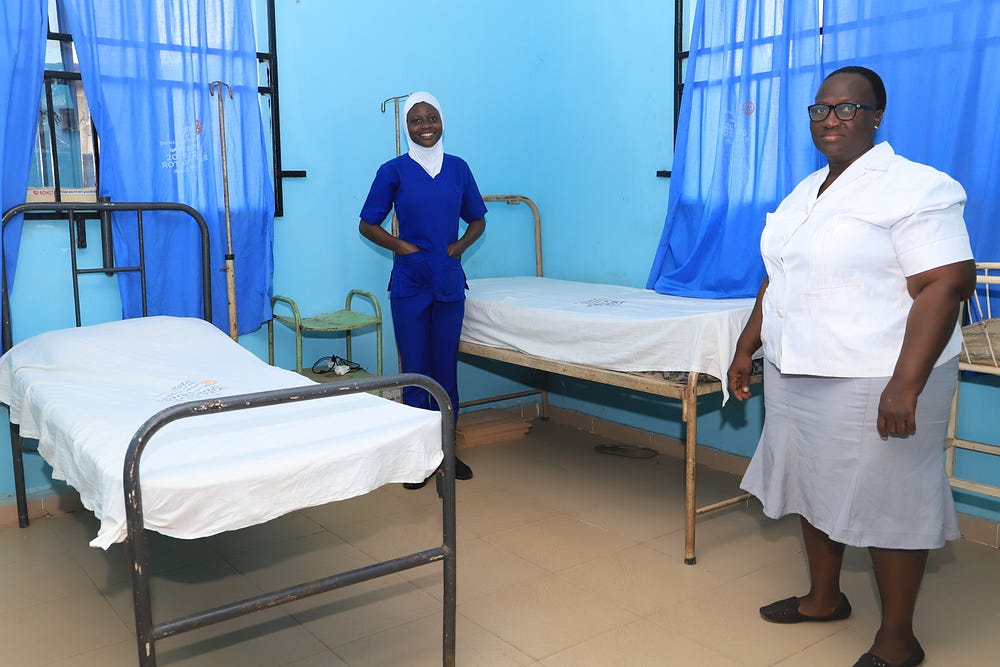
According to Dr. Elijah Ogunsola, Executive Secretary, Ogun State Primary Health Care Development Board, “The renovation process entailed a total overhaul of the existing PHC infrastructure, and this included the building structure itself, provision of water and power supply, procurement of equipment such as delivery beds and an ultrasound machine in each of the 20 LGAs, as well as power and water systems.”
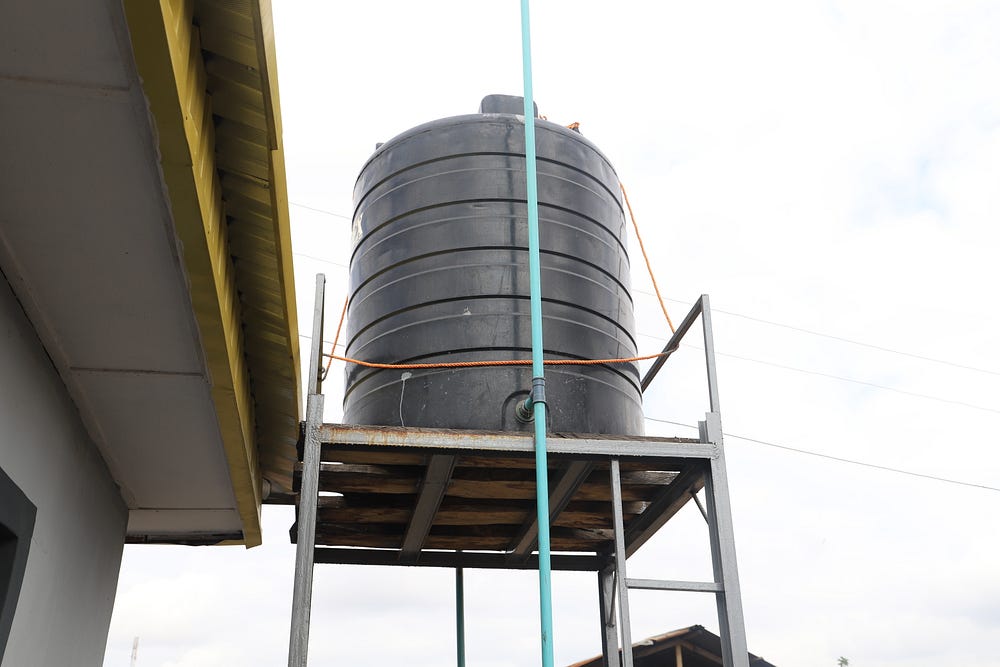
A key element of the project was the emphasis on community involvement. Residents were actively engaged in the planning and renovation of the health centers, providing input on the services that were most needed and playing a key role in the overall management and maintenance of the facilities. This ensured that the work was tailored to meet the specific needs of each community, to ensure that the PHCs could provide the most relevant and effective care possible.
Beyond just physical infrastructure, because it was also important that every PHC had well trained, and motivated human resource for health (HRH), the Ogun state government through the State Ministry of Health leveraged the Basic Health Care Provision Fund (BHCPF) to employ and deploy about 60 doctors and 80 midwives across the 20 LGAs in the state. The funds were also used to stock the facilities with essential medicines.
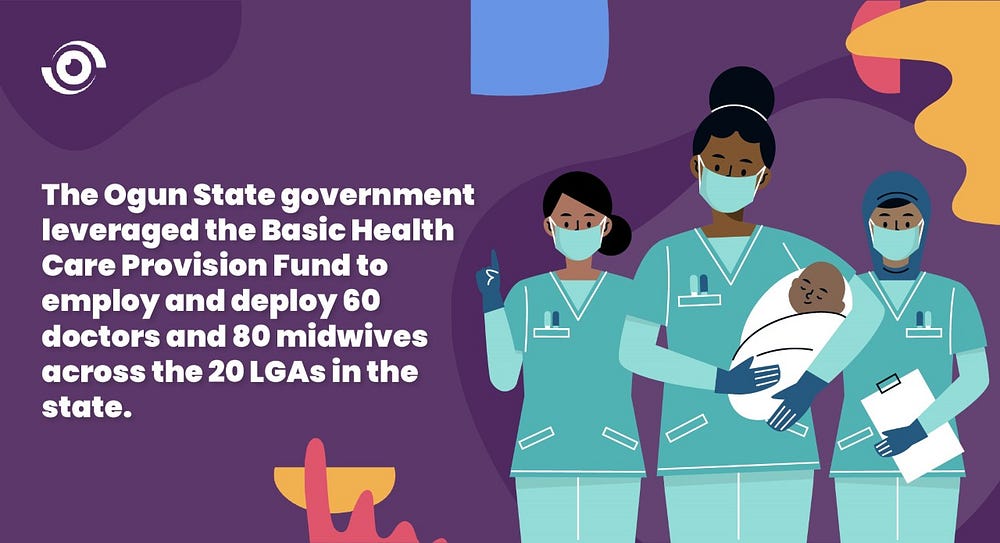
“We now run 24-hour shifts.”
The project is currently in its third phase and according to Dr. Ogunsola, as of August 2022, 63 of the targeted 236 PHCs have been renovated.
These renovations have given a new lease of life to PHCs like the Itun-Oluwo facility. Recalling what life was like before the renovations, Mrs. Adejola Afolake, Officer-in-charge of Itun-Oluwo PHC spoke of how the staff at the facility struggled to provide the most basic services. There was no source of portable water, no electricity and a shortage of medical equipment. A hand-dug seasonal well was their only source of clean water. The laboratory was not functioning. And the beds, tables and chairs were broken. “We had broken windows, no burglary proofing and broken floor tires. We did not have flooring in parts of the centre as well as any surrounding fence. Only parts of the building had paint, and a rusted old roof. It was very frustrating to work here as this place looked more like an Amala joint than a hospital,” she added.
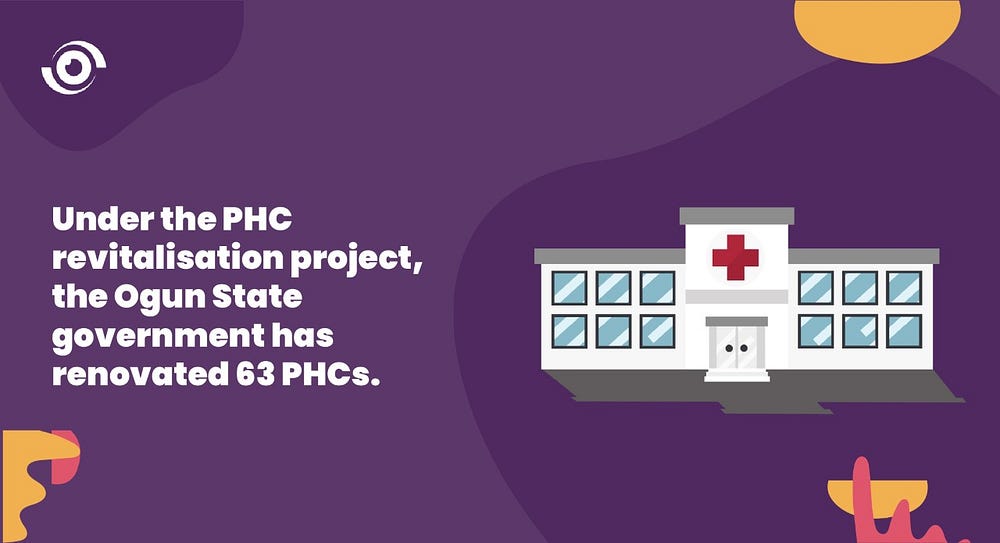
However, anyone visiting the PHC for the first time after the renovation will find it hard to believe that the PHC ever looked anything like the picture Mrs Afolake painted. The broken windows, missing tiles and the roof have been replaced and the building has been painted. “They dug a borehole for us which now gives us water all the time. We also have new beds, tables, chairs and shelfs. Before, we couldn’t admit any patients but now we can admit and even conduct deliveries in our labour ward. We now run 24-hour shifts, so we are available whenever we are needed,” said the visibly excited officer in charge.
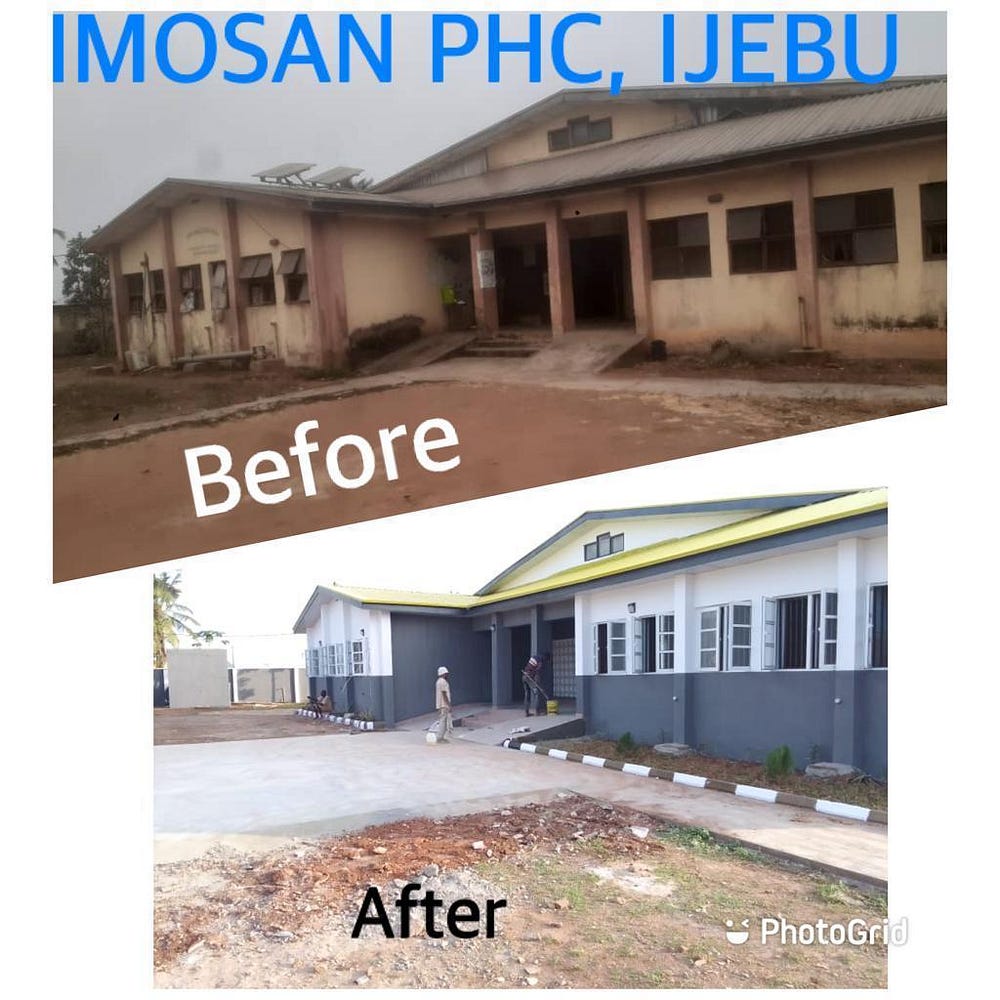
Mrs. Salam Rashidat, who has lived in the community for over 10 years backed up Mrs Afolake’s story with an experience of her own. “When I was pregnant with my last child, I couldn’t make use of the facility just because of the state it was in, but now I come here often, and my child has received all the immunisation he needs through this facility.”
Making progress but not without hurdles
Some of the challenges that have limited the effective delivery of primary healthcare services in Nigeria are poor and dilapidated health facilities, fragmented governance and coordination and inadequate funding. Ogun State has made significant investments in strengthening the state’s primary healthcare system; however, funding has been a major challenge as competing priorities in the state’s budget, from which the PHC revitalisation project is being financed, has significantly impacted available funds. As a result, a significant number of PHCs are still on the waiting list.
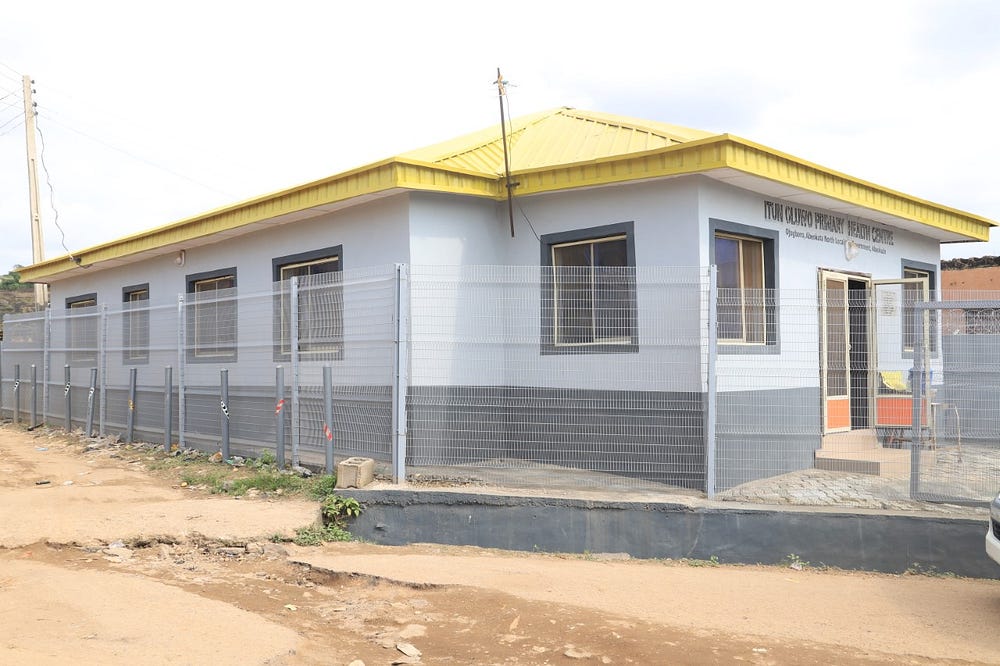
Public-private partnerships (PPP) can help bridge the funding gap. By leveraging the strengths of both the public and private sectors, PPPs can help address the challenges faced by the healthcare system and improve access to quality care.
The lack of functional PHCs endangers the lives of people, especially women and children in hard-to-reach communities. Therefore, national and subnational governments in Nigeria must actively fulfill their commitment to improving the country’s primary healthcare system, by revitalising at least one PHC per ward in their respective states. This aligns with the goal to make sure that each ward in Nigeria has access to at least one operational private or public Primary Health Care center as outlined by the BHCPF.


